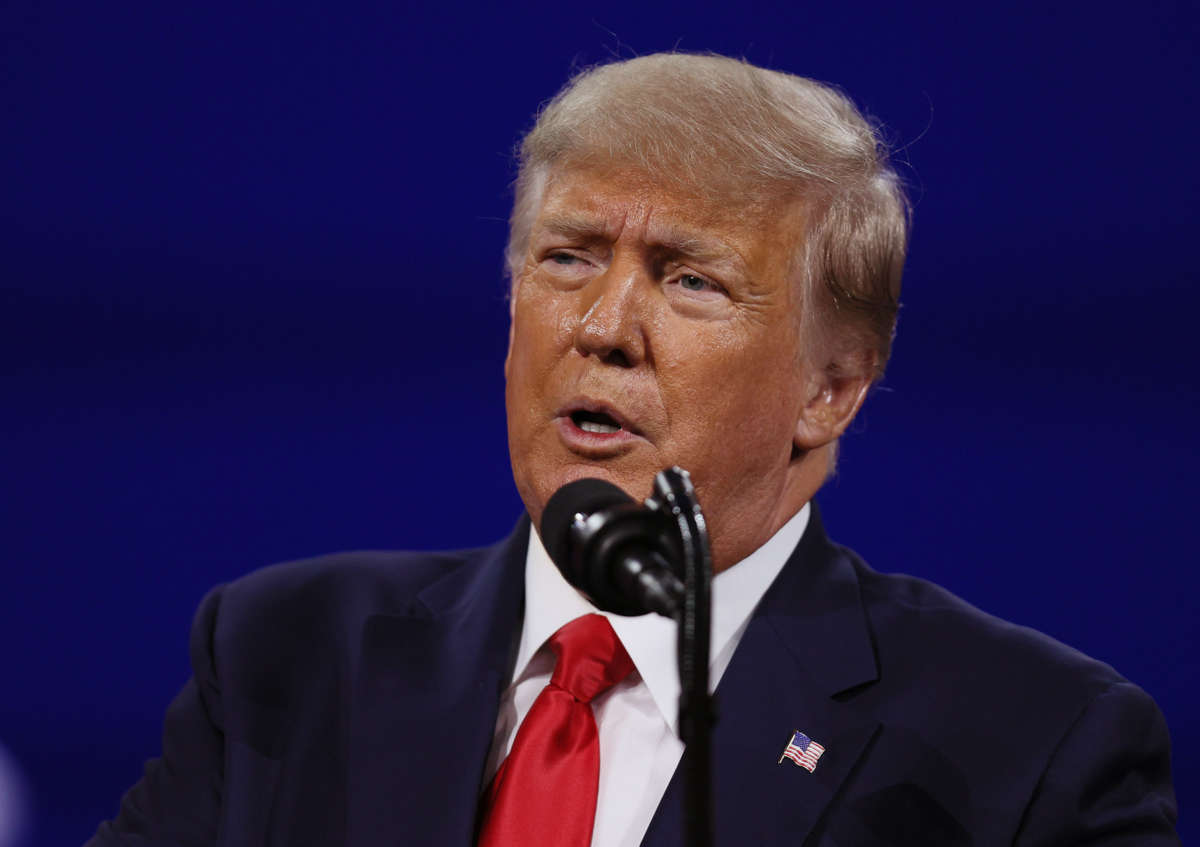Former President Donald Trump has filed a $100 million lawsuit against his niece Mary Trump and The New York Times, alleging that she and journalists from the paper “engaged in an insidious plot to obtain confidential and highly-sensitive records” regarding his personal taxes.
The Times, which reported on Trump’s tax filings in 2020, “convinced” Mary Trump to “smuggle records out of her attorney’s office and turn them over” to the paper, the lawsuit from Trump alleges. The lawsuit also alleges that the turning over of Trump’s tax records to The Times was “a material breach” of a nondisclosure agreement that Mary Trump was subject to from 2001.
The Times “relentlessly sought out Mary Trump and intentionally procured her breach of the Settlement Agreement,” the lawsuit adds.
The suit specifically calls out Times journalists Susanne Craig, David Barstow and Russell Buettner for their reporting on Trump’s finances — reporting that earned the trio a Pulitzer Prize in 2019 because it debunked the former president’s “claims of self-made wealth and revealed a business empire riddled with tax dodges.”
The Times defended its pursuit of Trump’s tax records, with a spokesperson saying that it “helped inform citizens” on an issue of “overriding public interest.”
“This lawsuit is an attempt to silence independent news organizations and we plan to vigorously defend against it,” the spokesperson said.
Craig defended her and her colleagues’ pursuit of Trump’s tax records, maintaining they didn’t do anything wrong.
“I knocked on Mary Trump’s door. She opened it. I think they call that journalism,” Craig wrote on Twitter.
Mary Trump also responded to her uncle’s legal filing against her, stating that trading lawsuits with one another “is how the Trump family communicates when they’re not getting along.” She also called her uncle a “loser” who was acting out of “desperation” by filing a lawsuit.
At several points over the course of many years Trump has made himself out to be an astute businessman, touting his credentials and supposed financial successes as reasons why he deserved to run the executive branch. The Times’s reporting showed otherwise, noting that the former president held more than $400 million in personal debt, some of it coming due within a few years’ time.
Over the course of 2016 and 2017, Trump paid just $750 in taxes — and in 10 of the 15 years before he became president, Trump paid no income taxes at all, the reporting from The Times found.
The revelations raised serious questions about Trump’s financial obligations and whether he could be trusted to have the nation’s best interests at heart.
“To whom does the president of the United States owe so much money, and what are they willing to do to ensure repayment?” asked Reed Galen of The Guardian at the time. “Especially when you consider that he has hundreds of millions of dollars in loans due for collection in the next four years. If he is unable to pay them back, what would these lenders be willing to accept in kind as payment for unpaid debts from the man who hopes to continue being the leader of the free world?”
Trump’s taxes were a major issue in the 2016 presidential campaign, and remained an issue in the 2020 election. In 2016, Trump thwarted the tradition of major presidential candidates disclosing their tax records, initially promising he would reveal them after an IRS audit was completed, but then refusing to do so both during the campaign and after he won office.
In 2017, Trump tried to justify keeping his tax records hidden by saying the American people didn’t care about them now that he had won — a claim that data from polling found to be untrue, even years after he was inaugurated.
Join us in defending the truth before it’s too late
The future of independent journalism is uncertain, and the consequences of losing it are too grave to ignore. We have hours left to raise the $12,0000 still needed to ensure Truthout remains safe, strong, and free. Every dollar raised goes directly toward the costs of producing news you can trust.
Please give what you can — because by supporting us with a tax-deductible donation, you’re not just preserving a source of news, you’re helping to safeguard what’s left of our democracy.
